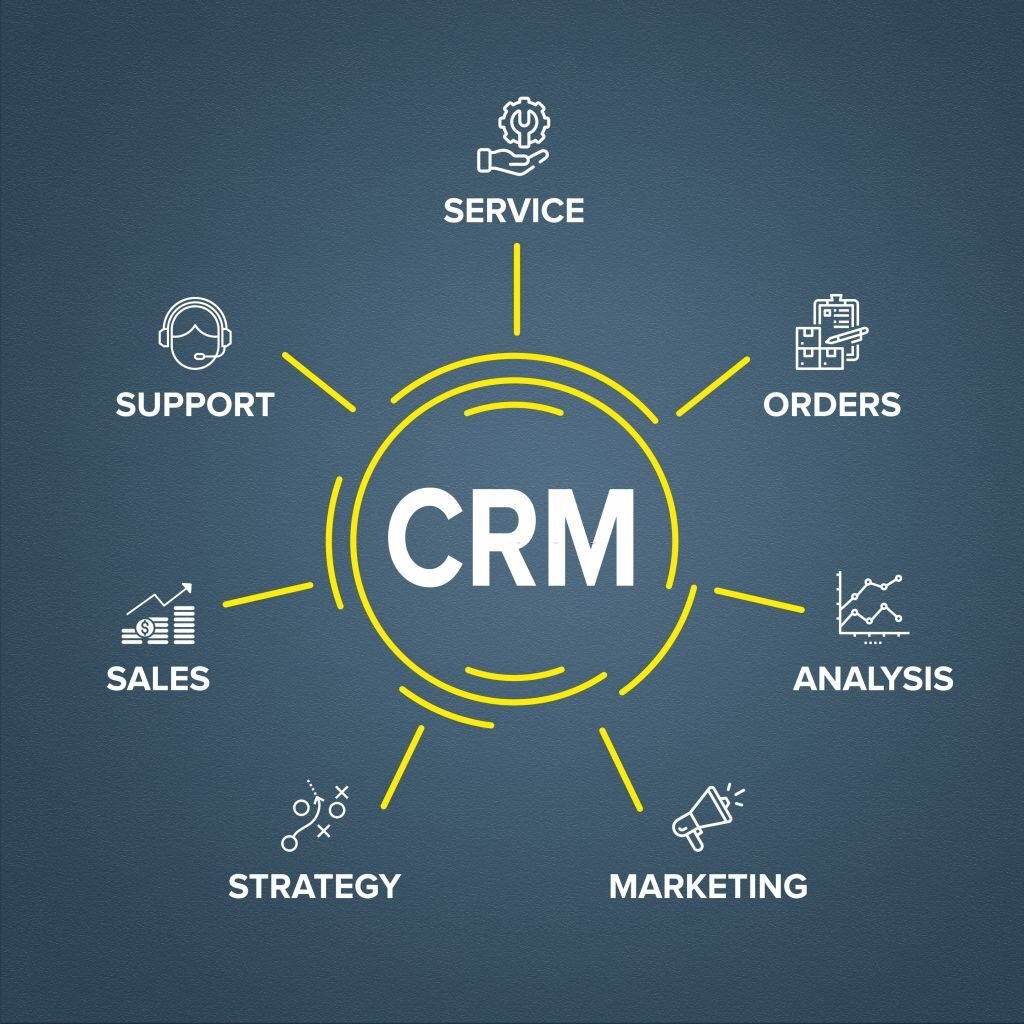In the ever-evolving landscape of e-commerce, adaptability and efficiency are crucial for success. The recent global challenges have further emphasized the need for businesses to weather storms and stay resilient. Amidst these uncertainties, Customer Relationship Management software (CRM) technology has emerged as a powerful tool for e-commerce businesses to navigate the turbulent waters and emerge stronger than ever.
Creating a CRM strategy to help your business thrive
Achieving business objectives and surviving at this time will depend heavily on getting this plan right from the start. Therefore, it’s important to clearly define your goals and know how you intend to use the system before embracing the idea of CRM. CRM deployment has high success rates, but unless it is properly used, the software will be largely useless.
Before building their strategy and putting it into concrete activities through CRM platforms, e-commerce enterprises must first outline their goals, identify their customers, and understand their customer journeys. What is the goal, in your opinion? Whom am I trying to reach? What is the path of my ideal customer? After you’ve responded to these and determined your desired results, consulting with IT firms can help you build a strategy based on these objectives by providing a service and strategy that are specifically tailored to your company’s objectives.
Top ways CRM technology can help e-commerce businesses
CRM for e-commerce offers the power to create tailored shopping experiences, catering to individual preferences and fostering lasting connections. By leveraging valuable customer insights, businesses can engage shoppers, streamline order management, and provide seamless customer support, all while making data-driven decisions for optimal results.
1. Personalized Shopping Experiences
In the competitive e-commerce landscape, one-size-fits-all strategies fall short. Customers seek personalized experiences that cater to their unique preferences and needs. CRM technology enables businesses to gather valuable customer data, including purchase history, browsing behavior, and preferences. Armed with these insights, e-commerce companies can create tailored shopping journeys, offering personalized product recommendations, promotions, and discounts. By providing personalized experiences, businesses can increase customer satisfaction, foster brand loyalty, and gain a competitive edge.
2. Enhanced Customer Engagement
Engaging customers is the cornerstone of e-commerce success. CRM technology equips businesses with tools to automate personalized communication, such as follow-up emails, abandoned cart reminders, and special offers. By staying connected with customers throughout their shopping journey, e-commerce businesses can nurture relationships and encourage repeat purchases.
3. Streamlined Order Management
E-commerce companies must manage and handle orders effectively, especially when faced with unforeseen difficulties. CRM solutions Singapore can automate functions like order tracking, inventory control, and fulfilment to streamline order management procedures.
Businesses may automate workflows, lower manual errors, and guarantee quick order processing by combining CRM technology with e-commerce systems. This level of effectiveness helps firms optimise their supply chains and lower operating costs while also increasing customer happiness and confidence. The sending of emails to clients to remind them of abandoned shopping carts or to re-enter the shopping platform to complete an order that was started but not completed can be automated by businesses, which also helps to enhance revenue.
Additionally, by utilising the automated features of CRM system Singapore, businesses can predict when clients will need to reorder their goods or services. For instance, an insurance provider can keep track of when customer policies need to be renewed, or a company that sells toiletries can identify when a customer last ordered a new toothbrush and get in touch with them to persuade them to do so. Effective order management involves more than just making the initial sale; it also involves knowing how to handle previous orders to encourage recurring business.
ARP Ideas works with a variety of businesses, including those engaged in e-commerce, to assist them in managing large volumes of orders using a customised automated CRM solution tailored to their unique operational requirements. We can affirmatively state that as a result, our customers are now experiencing increased sales, quicker processing, and more effective collaboration.
4. Efficient Customer Support
Responsive customer support is a non-negotiable aspect of e-commerce. CRM technology centralizes customer interactions, allowing support teams to access complete customer histories and resolve queries promptly. Quick and efficient support builds trust and leaves a positive impression on customers, fostering brand loyalty and advocacy.
5. Data-Driven Decision Making
In the data-driven era, actionable insights play a pivotal role in decision-making. CRM systems capture and analyze vast amounts of customer data, enabling e-commerce businesses to gain valuable insights into consumer behavior, trends, and preferences. Armed with data-driven insights, businesses can make informed decisions, optimize marketing strategies, and identify new growth opportunities.
6. Targeted Marketing Campaigns
Effective marketing campaigns can significantly impact e-commerce growth. CRM technology allows businesses to segment their customer base based on demographics, purchase history, and preferences. This segmentation enables targeted marketing efforts, reaching the right audience with the right message at the right time. By delivering personalized and relevant content, e-commerce companies can improve conversion rates and maximize return on investment (ROI).
7. Retention and Loyalty Programs
In the competitive e-commerce arena, customer retention is key. CRM for e-commerce facilitates the creation of loyalty programs and rewards schemes to incentivize repeat purchases. By acknowledging and rewarding customer loyalty, businesses can foster long-term relationships and turn customers into brand advocates.
8. Predictive Analytics for Sales Forecasting
Accurate sales forecasting is crucial for inventory planning and resource allocation. CRM systems equipped with predictive analytics help e-commerce businesses forecast sales trends and demand patterns. This ensures businesses are prepared for fluctuations in demand, avoiding stockouts, and overstock situations.
9. Seamless Integration with Marketing Automation
CRM technology seamlessly integrates with marketing automation tools, providing a unified platform for e-commerce businesses. Automated email campaigns, social media promotions, and personalized advertisements can be executed based on CRM data, saving time and effort while maximizing marketing effectiveness.
10. Multi-Channel Customer Support
Customers of today need a smooth buying experience across many platforms, such as websites, mobile apps, social media sites, and marketplaces. CRM technology enables online retailers to coordinate their marketing and sales initiatives across these numerous platforms.
Businesses may offer consistent and individualised experiences regardless of the channel customers select by centralising customer data and interactions in a CRM system. This integrated approach fosters customer loyalty, increases engagement, and ultimately, maximises revenue opportunities in particular by reducing the time required to manually process data flowing in from multiple channels.
Read More – software development company
Conclusion
In the ever-changing and competitive world of e-commerce, CRM technology emerges as a powerful ally for businesses seeking to weather the storm and thrive. From personalized shopping experiences to data-driven decision-making and targeted marketing campaigns, CRM for e-commerce empowers businesses to adapt, engage, and succeed.
Efficient customer support, streamlined order management, and retention programs further solidify the foundation of a successful e-commerce venture. By leveraging CRM’s capabilities, businesses can navigate through challenges, engage customers across channels, and emerge stronger than ever.
Embrace CRM for e-commerce and unlock the true potential of your business. Let it be your compass, guiding you towards prosperous horizons, empowering you to steer your ship with confidence through turbulent waters. Adapt, engage, and thrive—the power of CRM is your ally in the journey towards e-commerce success.



